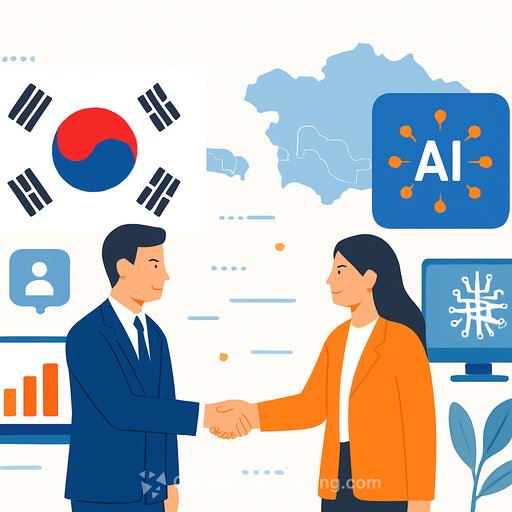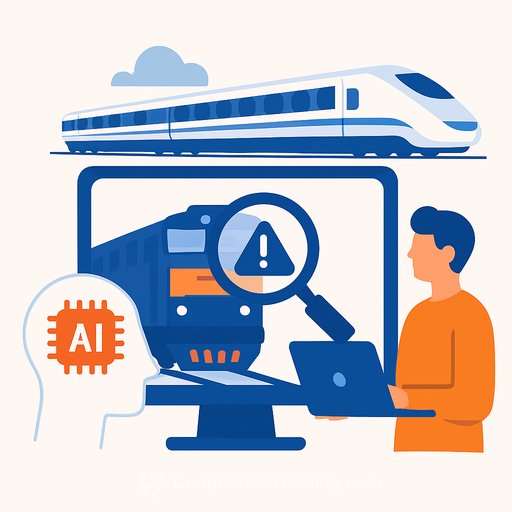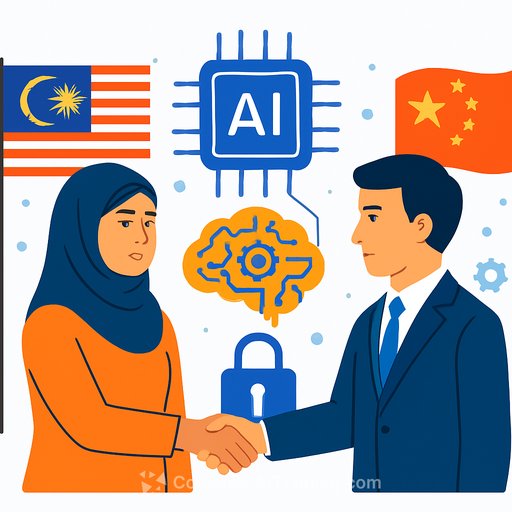South Korea-Central Asia forum zeros in on AI talent, digital transformation, and education partnerships
South Korea and Central Asian countries are tightening cooperation around AI talent and digital capacity. At the Korea-Central Asia AI Talent Development Cooperation Forum on October 19, lawmakers, researchers, and diplomats gathered for focused discussions on how to scale skills, programs, and practical collaboration.
The event, noted by the Embassy of Kazakhstan in Seoul, was organized by the Korea Foundation for Science and Creativity (KOSAC) and the Secretariat of the Central Asia-Republic of Korea Cooperation Forum (CARK). Participants included lawmakers Hong Ki-won and Kim Gun, along with experts and scholars from across Central Asia.
Key signals from the forum
KOSAC President Jung Woo-sung framed the forum as a working platform to build the future of digital tech and AI together, with an emphasis on bilateral and multilateral education programs. Rhee Jong-kook, Executive Director of the CARK Forum Secretariat, underlined that Korea and Central Asian states have built strong economic, educational, and cultural cooperation over three decades-and that AI and digital transformation are the next practical steps.
Kazakh Ambassador to Korea Nurgali Arystanov said the event is an opportunity to deepen the strategic partnership between Kazakhstan and Korea. He highlighted Kazakhstan's push on AI policy, including the announced creation of a Ministry of Artificial Intelligence and Digital Development, and pointed to recent outcomes like Woosong University's branch campus in Turkistan and an AI school at Korkyt Ata Kyzylorda University with Seoul National University of Science and Technology.
Why this matters for engineers, data teams, and tech leads
- Talent pipelines: Expect new cross-border programs, scholarships, and internships tied to AI curricula-faster access to skilled grads and research partners.
- R&D momentum: University-industry projects and applied research will expand, especially in ML ops, data infrastructure, and sector-specific AI (healthcare, public services, and governance).
- Policy clarity: A dedicated AI ministry in Kazakhstan signals more structured standards, procurement, and potential incentives-useful for teams building compliant AI systems.
- Regional integration: Joint labs and course exchanges create opportunities to pilot multilingual models, local datasets, and domain-specific benchmarks.
What was put in motion
- Education scaling: New and expanded programs to train engineers, data scientists, and product teams across Korea and Central Asia.
- Institutional partnerships: Concrete examples already exist-Woosong's Turkistan branch and the AI school at Korkyt Ata Kyzylorda University with SeoulTech.
- Strategic policy moves: Kazakhstan's planned AI-focused ministry indicates government-level commitment to AI infrastructure, standards, and skills development.
What to watch next
- MoUs and funding: Track grants, scholarships, and joint research calls targeting applied AI, data platforms, and model evaluation.
- Public-sector use cases: Expect pilots in digital government, healthcare triage, and education analytics-valuable references for enterprise adoption.
- Standardization: Guidance on data governance, model audits, and safety testing that will influence engineering practices and vendor selection.
Practical steps for tech teams
- Align skill maps: Map current team skills to upcoming academic offerings; plug gaps in ML engineering, data governance, and evaluation.
- Set up joint projects: Partner with universities for capstone projects and internships focused on production-grade ML pipelines and model monitoring.
- Localize early: Prepare multilingual datasets and evaluation sets for Kazakh, Korean, and regional languages to reduce deployment friction.
- Compliance-ready architecture: Bake in data lineage, consent tracking, and audit logs to meet emerging AI and data regulations.
- Build talent funnels: Participate in hackathons and guest lectures; sponsor research topics that match your product roadmap.
Resources
If you're building a training plan for your engineering org, you can browse role-based AI upskilling paths here: Complete AI Training - Courses by Job.
Bottom line: Korea-Central Asia cooperation on AI is getting concrete-new programs, clear policy signals, and real university-industry bridges. For IT and development teams, this is a chance to secure talent, co-develop applied research, and speed up deployments with education partners who are moving in the same direction.
Your membership also unlocks:






